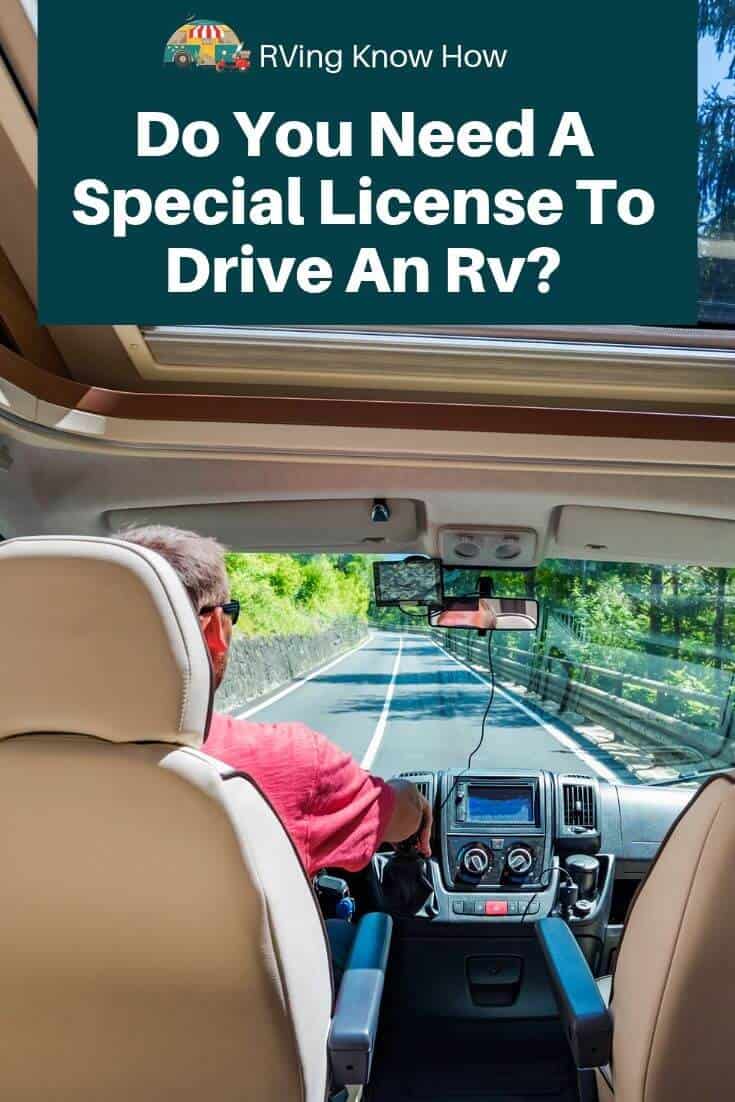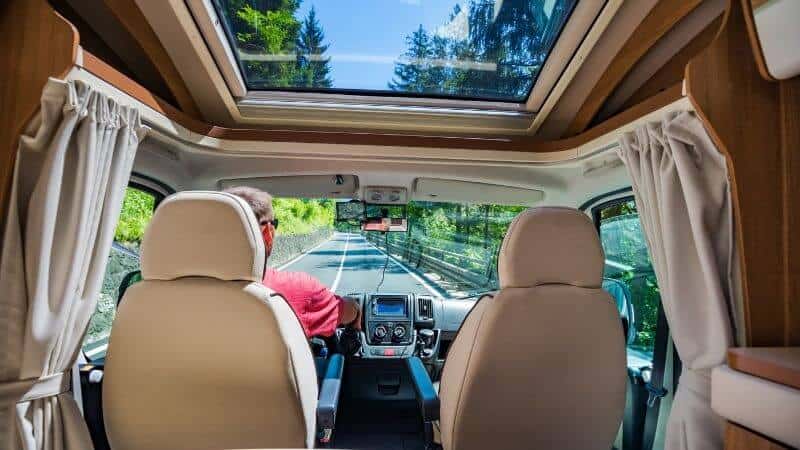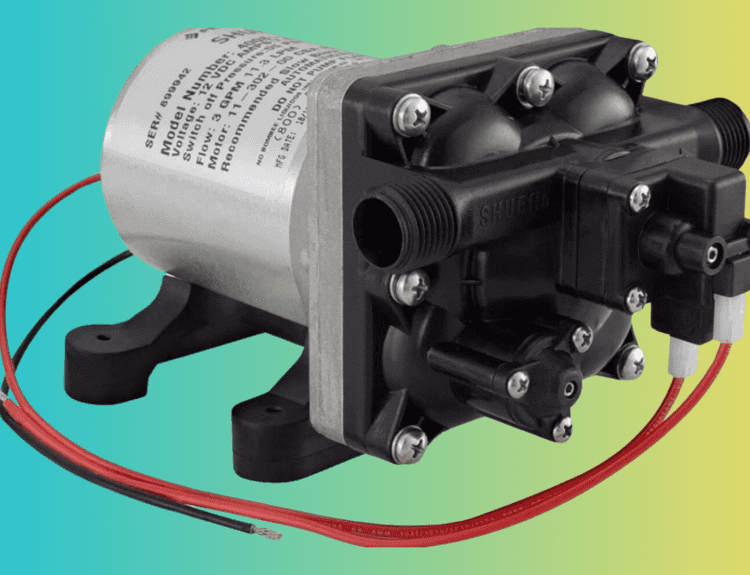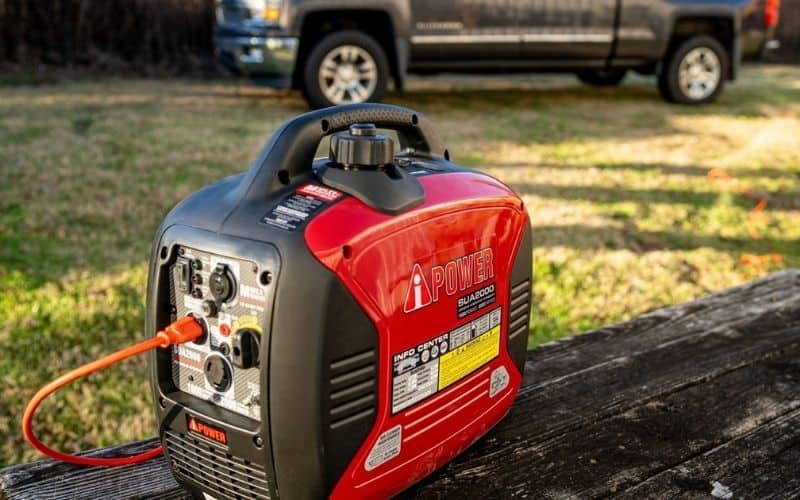Recreational vehicles allow you to take the comforts of home with you when you travel. Some can be very large, and even a little difficult to drive.
You might be wondering if you need a special driver’s license to drive an RV?
The answer to this can vary depending on where you live and the size of the RV or motorhome. In many states, there are no special licensing requirements for motorhomes, so long as they meet certain criteria. At the same time, your state might also have some rules related to things like a towed vehicle, camper, or RV trailer.
In this article we will explore the various regulations state by state, as well as helping you to answer some of the following important questions.
Do you need a commercial or non-commercial driver’s license to operate a motorhome?
How does vehicle length effect licensing requirements? What type of license do you need for an RV weighing over 26,000 pounds?
What Is A Special License?
Special licenses can be broken down into two different categories, commercial or non-commercial.
There are some states that require you to have a non-commercial special license in order to operate a recreational vehicle depending on its weight or length or weight.
At the same time, there are other states that specifically require you to have a commercial driver’s license to operate heavy vehicles.
Also known as a CDL, you typically need this type of license to drive a bus or tractor-trailers.
However, if you are towing an additional vehicle, boat, watercraft or trailer behind your RV, there are some states that have special requirements based on the combined weight.
do you need a special license to drive an rv?
Many people shopping for their first motorhome or recreational vehicle wonder about special requirements for a specific type of RV.
While some states might have special regulations, most states base their driver’s license requirements on the gross weight of the vehicle. This might also include additional towed vehicles.
In most states, a standard driver’s license is sufficient for driving an RV that weighs less than 26,000 pounds. However, there are some states that require a commercial driver’s license or a special non-commercial driver’s license endorsement to legally operate a recreational vehicle on their roads.
GVWR, or gross vehicle weight rating, is defined as the maximum operating weight of a vehicle.
This includes the vehicle itself as well as on-board cargo, engine fluids, accessories, built-in appliances, and even fuel. It’s important to note that the GVWR does not include the weight of a towed trailer.
GCWR, which stands for gross combined weight rating, is defined as the total weight of a vehicle, which also includes all the various types of the trailer as well as other vehicles which might be towed behind it.
In the case of towing a heavy trailer, the GVWR is meant to designate the maximum weight of the power unit, which is often a heavy-duty pickup truck or a motorhome as well as the vehicle being towed. Common examples include things like:
-
A travel trailer
-
A popup camper
-
A toy hauler
-
A 5th-wheel camper separately.
It’s also worth noting that there are some states where length is also a factor in license requirements.
Wisconsin requires you to have a commercial driver’s license if your recreational vehicle is longer than 45 feet.
However, this is more of an exception. Most state view weight as the primary criteria for determining license requirements.
Are There Special Requirements For Different RV Types?
Many lightweight RV owners don’t want to go through the time and hassle to acquire a new driver’s license endorsement in a new state.
In many of these cases, the time requirements take away from the trip.
So long as your RV weighs less than 26,000 pounds, and you meet the basic towing requirements from the states listed above, you should be just fine. Just make sure to double-check the gross vehicle weight.
This might be listed in your owner’s manual or on the door stamp as GVWR. If that number is less than 26,000 pounds you can breathe easy.
It’s also worth bearing in mind that there are many Class A motorhomes and RVs that have a GVWRs that exceeds 26,000 pounds.
If you are shopping for a large unit, you should double-check the weight and your state’s requirements.
Class B and Class C rated motorhomes tend to weigh significantly less than a class A RV or motorhome.
It’s still a good idea to double-check the GVWR, just to be sure that you have the correct type of license or endorsement.
When it comes to other types of RV like fifth wheels, travel trailers, and toy haulers, most weigh less than 10,000 pounds.
Just keep in mind that there are some states where the combined weight of the trailer and the tow vehicle matter.
If you are using a large truck to tow a heavy fifth wheel, you might want to double-check to make sure that your combined weight is less than 26,000 pounds.
If your tow vehicle and RV trailer weigh more than 26,000 pounds combined, then you may likely need to get a non-commercial class A driver’s license. Failing to do so, could have very serious legal repercussions.
Do rv license Regulations Change From State To State?
Most states have an agreement of reciprocity when it comes to driver’s license requirements.
This means if you are licensed or have a license endorsement in your home state, it carries over to another state, even if there might be some minor technical differences.
However, state reciprocity agreements aren’t in place 100% of the time. Indeed, there are some states that do not have reciprocity.
This includes:
-
Alaska
-
California
-
Michigan
-
Montana
-
Oregon
-
Wisconsin
While this is more often an issue relating to speeding laws and other vehicular codes, there are times when you may need a special driver’s license endorsement.
So, it’s always a good idea to double-check the codes and requirements for all the states you will be visiting on your planned itinerary.
Below you will find some special considerations for driving large vehicles and weight restrictions that are broken down by state.
Some states will also require a special license or a commercial license depending on the weight, length, and type of vehicle.
Commercial Driver’s License Requirements By State
Non-Commercial Special Driver’s License Requirements or Endorsements By State
A non-commercial driver’s license is your standard driver’s license issued by the DMV. It allows you to operate standard vehicles like cars, sedans, pickup trucks, passenger vans, and SUVs.
However, many states that special endorsements that you need to apply and test for in order to operate certain types of vehicles. Most base their requirements on weight.
States That Don’t Require A Special RV Driver’s License?
There are a few states that do not require a special driver’s license or a special endorsement to drive a recreational vehicle.
If you aren’t clear on your state’s specific requirements, you can always call your local DMV for more information.
States that don’t require a special driver’s license or endorsement include:
What About a Special License to Drive an RV in Canada?
Canada has a completely different set of laws. Most of these regulations apply to Canadian citizens.
For the most part, if you have a value US driver’s license you should be just fine operating your RV on Canadian roads.
However, there are a few procedural things to keep in mind, if your travel itinerary calls for crossing the border.
Crossing international borders with your RV and so many other comforts of home can be a little bit complicated. Especially if you aren’t crossing at a major border.
Technically you need to have a passport, and if you have pets, with you, then you will need to present their vaccination records.
Chances are if you are driving an RV, they will want to see your driver’s license and any pertinent endorsements for your home state, or the state that you are leaving.
They might also ask for information about your RV and any towed trailer or secondary vehicle.
This includes things like the date registration for your RV and a possible tow car. They might also ask for your proof of insurance.
Is There A Difference Between A Recreational Vehicle And A Motorhome?
A recreational vehicle or RV is a broad term used to describe a motor vehicle or trailer that is equipped with common home amenities.
A motorhome refers to a type of RV where the motorized vehicle includesthings like beds, a basic kitchen, a bathroom and more significant living quarters.
However, these differences are largely definitions assigned by manufacturers and industry professionals.
Most state laws and regulations regard motor-homes and RV’s based on their weight, length or size.
Can I Drive A Motorhome With A Car License?
In most states, you don’t need a special license to drive a motorhome, so long as it weighs less than 26,000 pounds.
However, there are some states that do require special licenses or endorsements.
Are There Regulations Based On The Number Of Passengers?
With many states, the number of passengers can be a factor for the class of license you need to legally operate a vehicle. These restrictions usually start at 16 total passengers.
So, unless you are loading up everyone for the big family reunion, or you have converted an old school bus into an RV, then chances are the number of passengers won’t be a factor.
Is Driving An RV Different Than Driving A Car Or Truck?
Even if you live in a state that doesn’t have any special license requirements to drive a motorhome or RV, you still shouldn’t assume that it’s the same as driving a car or a truck.
Many first time RV drivers need a fair amount of time and practice to get a feel for how their motorhome handles.
You might feel like you are flashing back to the Driver’s Education classes, going to a mall parking lot early on a Sunday morning to practice driving.
It really isn’t a turnkey experience. So, don’t be embarrassed if you need a little extra practice.
The last thing you want to do is make a serious error when you are on the road or when your vacation takes you far from home.
The following are some basic tips to help you acclimate driving an RV motorhome.
How To Steer And Turn A Motorhome
Most motorhomes are long and wide. This has a direct impact on their turning radius as well as how the handle in a turn.
In general, you will need to take much longer and wider turns than you would in a car or even a large pickup truck.
Right turns tend to be the most challenging, as you are close to the curb. Some novice RV drivers will attempt to start in the left lane and take a wide right turn.
This can be a very serious safety concern in traffic, as you might not be able to see if there is someone in the right hand lane.
Ideally, you want to have your driver’s side tire as close to the lane line as possible, while still being in the right lane.
Then double-check your mirrors and take the turn slowly. Don’t worry if someone behind you gets impatient and honks.
It’s better to go slow and get it right than it is to damage your motorhome or another vehicle.
With practice, you will start to get a better feel for how your motorhome turns and handles. A few cones and an empty parking lot will go a long way toward accelerating this process.
How To Reverse And Back-Up A Motorhome
Reversing a motorhome can be a little intimidating for the uninitiated. Especially if you will also be towing a trailer or a secondary vehicle.
Again, it’s the sort of thing that is worth practicing in an empty parking lot.
The goal is to get use your mirrors as much as possible. If you are backing out of a campsite, it might also help to have a spotter behind you.
If possible, you should consider disconnecting a trailer or tow car while backing up.
Does A Motor Home Brake Differently?
In general, the larger something is, and the fast it is going the longer it’s braking distance will be. This is especially true with motorhomes, which also tend to be heavy.
When you are on the road, you will need to consciously maintain a greater distance from the vehicles in front of you.
It can help to have someone else sitting in the passenger seat when you are in heavy traffic.
They can help spot potential obstacles, and read road signs, which will allow you to stay focused on driving.
When going downhill with a manual transmission, you may need to downshift. This will let your engine do some of the braking as deceleration.
The increased resistance from putting the engine in a lower gear will help slow the motorhome down while also helping to reduce the wear and tear on your braking system.
Tips For Parking A Motorhome Or RV
Motorhomes have more blind spots than a car, truck, or even a panel van! If you are having trouble seeing, it’s best to stop and have a spotter help direct you.
Feel free to take your time and use your mirrors as much as possible. If you think one parking spot is too small or too complicated, you should consider moving to a different spot.
Pay Attention At Bridges
When you are in a car you rarely concern yourself with the details of a bridge.
However, there are some small bridges out there in the world, that have weight or height restrictions.
You should know the ride height of your RV like the back of your hand.
If you aren’t sure, you can always take an extra minute or two to measure the height of your roof and any accessories.
Tips For Finding A Gas Station
Many gas stations have overhead awnings or roof structures which can be problematic for a large motorhome.
There are also some that have narrow fueling lanes or tight turns. If possible, it’s best to avoid these traditional gas stations, which are meant to accommodate cars and trucks.
Instead, try to fuel up at truck stops. They are designed to accommodate large, tall vehicles.
Many even have restaurants and other facilities you can use.
Are There RV Driving Schools?
It might surprise you to know that there are indeed driving schools that offer special RV driver’s training programs.
Even if there isn’t one in your hometown, chances are you can find one through an internet search that will help speed the process.
If you live in a state with special licensing requirements or endorsements, your local DMV might be able to point you in the right direction.








3 Comments
Andy
3 years agoWhere can I find statistics of how often new or not new travel trailer owners damage their trailer, property or someone while backing up, parking or driving off with their travel trailer? I have searched the internet and the only statistics I find are major accidents.
Aaron Richardson
3 years agoI think it’s really hard to find statistics like this.
Aleks
3 years agoHi Aaron, you are using actual weight and GVWR interchangeably, but they are not the same. You say: if your RV weighs less than 26000 lbs, you don’t need a special license. The 26000 lbs rule is not for the weight of the RV, it’s the GVWR. GVWR is the maximum weight a vehicle can have when you combine the weight of the vehicle itself and everything in it, as stated by the manufacturer of that vehicle. For example, my RV has GVWR of 28000 lbs. There’s a sticker that says that, but if I weigh the RV, it’s weight is 25500 lbs. In NC the law talks about GVWR, so since GVWR is 28000 lbs, which is more than 2600 lbs, I need a class B non commercial license.